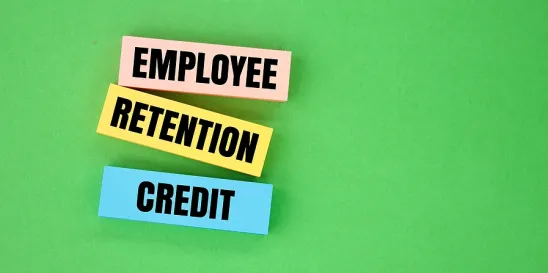“IRS Criminal Investigation is committed to bringing justice to those who have exploited the pandemic for personal gain and have stolen from America’s taxpayers.”
- IRS Criminal Investigation Special Agent in Charge Albert Childress.
The Employee Retention Credit (ERC) is a refundable tax credit for businesses whose employees were impacted by the COVID-19 Pandemic. The provisions are set out in § 2301 of the CARES Act and § 3111 of the Internal Revenue Code (26 U.S. Code § 3111). There are various requirements for businesses to qualify for credit, which vary depending on when claims were made. Critically, if businesses claimed ERC credit, but did not qualify under the requirements, they should strongly consider applying for the Voluntary Disclosure Program (VDP) before the impending March 22, 2024 deadline expires. There are three elements under the ERC-VDP: First, one must voluntarily payback the ERC, minus 20 percent. Second, businesses must cooperate with any IRS requests for more information. And third, businesses must sign a closing agreement.
There are three elements under the ERC-VDP: First, one must voluntarily payback the ERC, minus 20 percent. Second, businesses must cooperate with any IRS requests for more information. And third, businesses must sign a closing agreement.
The IRS offers a step-by-step checklist to determine ERC eligibility. Before proceeding, employers will first answer three initial eligibility questions: (1) when they were shut down because of a government order, or (2) when they had the required decline in gross receipts during certain eligibility periods in 2020 and 2021, or (3) when they qualified as a recovery startup business for the third or fourth quarters of 2021. While these questions may seem straightforward, businesses must have also provided adequate records demonstrating the qualified wages paid. In addition to other requirements, the determination of whether wages paid by an employer represent qualified wages also depends upon whether the employer is classified as a large eligible employer (i.e., generally one that averaged more than 100 employees).
Aside from the VDP option, the IRS is still accepting requests to withdraw ERC claims under the special withdrawal process. Withdrawal is possible if a taxpayer has yet to receive an ERC or has received a check but has not deposited it. If you ask to withdraw the ERC, the IRS will not impose any penalties or interest, because it will be as if an ERC claim was never filed. However, if you made any changes on the adjusted employment tax return or need to reduce an ERC claim, you cannot use this withdrawal process. You would instead need to amend your return.
The IRS created these options to help employers avoid any penalties and interest associated with incorrect ERC claims, but it is clear the IRS is aggressively investigating these claims. The IRS has been conducting thousands of audits, has opened numerous civil investigations, and has initiated at least 352 criminal investigations, involving more than $2.9 billion in fraudulent ERCs, including in California, Georgia, Maine, Mississippi, New Jersey, Ohio, and Utah.
The IRS created these options to help employers avoid any penalties and interest associated with incorrect ERC claims, but it is clear the IRS is aggressively investigating these claims.
The IRS is surging resources flowing from tax credits following the Pandemic. In August 2023, the Department of Justice announced two new fraud strike forces in Colorado and New Jersey and this announcement specifically referenced ERC enforcement. These forces are a result of over 700 enforcement actions for offenses exceeding $830 million in alleged COVID-19 fraud. Additionally, there were over 370 criminal charges, with 119 defendants pleading guilty, alongside over $57 million in restitution. ERCs and sick and family leave credits have been used by a significant number of bad actors to collectively commit hundreds of millions of dollars of fraud, and while these Pandemic support incentives may be over, the federal government’s prosecution of ill-gotten gains is beginning.
Takeaways
- If your company collected ERCs, review the eligibility requirements through an audit and determine whether the best strategy is to take advantage of the VDP.
- If your company is being investigated by the IRS, consult with counsel immediately before providing information or speaking with the IRS, since material false statements may be the basis for criminal exposure under Title 18, U.S. Code, Section 1001.
- Companies should connect their tax preparers with outside counsel to assess the dimension of risk with ERCs.
- Given the potential civil and criminal risks involved, companies should proactively develop a response strategy with respect to ERC to avoid becoming the focus of an investigation.
- Generally, willfulness is the specific intent required for a tax violation to be criminal. This is defined as the “voluntary, intentional violation of a known legal duty.” Cheek v. United States, 498 U.S. 192, 200-01. A defendant's good faith belief that he or she is not violating the tax laws, no matter how objectively unreasonable that belief may be, is a defense in a tax prosecution. Id. at 199-201. However, a defendant’s intent can be inferred from his or her conduct and all the surrounding circumstances. United States v. Rohn, 964 F.2d 310, 314 n.3 (4th Cir. 1992). Having seasoned counsel explain these dynamics in the context of an IRS investigation is vital.







 />i
/>i

